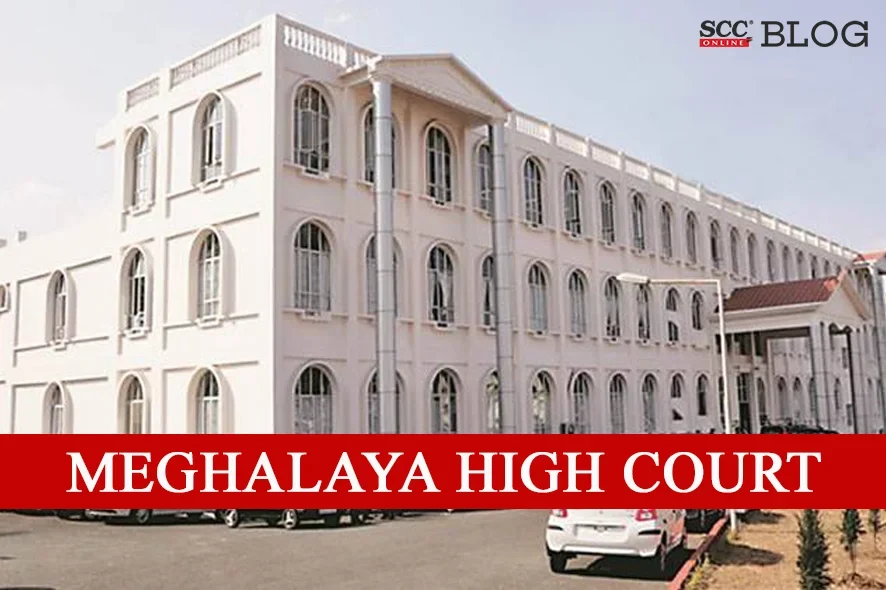Meghalaya High Court: In a Bail application filed under Sections 439 and 167(2) of the Code of Criminal Procedure, 1973 (‘Cr.P.C’) read with Section 37 of the Narcotic Drugs and Psychotropic Substances Act, 1985 (‘NDPS’), the single Judge Bench of W. Diengdoh J., granted bail to the accused considering the fact that she is a women, suffering from HIV positive and required specialized treatment.
Background
On 16-03-2023, one vehicle was intercepted containing five plastic soap boxes. These boxes were containing yellowish coloured powder, which on preliminary testing resulted positive for heroine. Later, the quantity seized was found to be around 55.68 gms. A person was arrested in such connection who admitted that she was directed to bring the said consignment to Shillong by the accused. The police arrested the said accused who happens to be an HIV positive patient. A charge-sheet was filed stating that a case was well found under Section 21(b) and Section 29 of the NDPS Act against both the accused persons. The accused was seeking bail on three grounds, firstly, that the charge sheet filed against the applicant was not complete and therefore, the accused was entitled to be released on default bail under Section 167(2) of the CrPC, as the accused was in custody for more than 60 days, secondly, there was no evidence to link the accused with the alleged offense and thirdly, that the accused is an HIV positive patient and required specialized medical treatment.
Decision
The Court said that it was apparent that there was no question of attraction of the provision under Section 37 of the NDPS Act as the quantity seized was of intermediate range. The Court further said that it is too early to come to any conclusion on the issue of conscious possession and the Call Data Record (‘CDR’) analysis since the same was to be proved at the Trial Court.
The Court perused Section 437 of the CrPC and said that it provides for bail which may be granted in cases of non-bailable offence. Further, the Cour said that the sub- section 1 speaks of a person arrested to be released on bail. Further, the Court noted that in the proviso to clause (i) and (ii), a person so arrested who may not be released on bail in the normal course, could be released on bail if such person is under the age of 16 years or is a woman or is sick or infirm. The Court also referred to Bhawani Singh v. State of Rajasthan1, wherein the Supreme Court had released the HIV Positive accused on bail. Therefore, the Court said that considering the gravity and seriousness of the offence alleged, particularly one involving public interest, the Court would not have considered the prayer made, but for the admitted fact that the applicant was a woman and was confirmed as suffering from HIV, for which she required specialized treatment, the Court decided to release the applicant on bail.
The Court directed to release the applicant on bail on certain conditions:
i. that she shall not abscond or tamper with the witnesses;
ii. that she will appear before the Trial Court as and when required;
iii. that she will not leave the jurisdiction of the State without prior permission from the Trial Court; and
iv. that she will bind herself with a personal bond of Rs. 1,00,000/- only with two solvent sureties of like amount to the satisfaction of the Trial Court.
[X v. State of Meghalaya, 2023 SCC OnLine Megh 325, Order dated: 27-06-2023]
Advocates who appeared in this case :
For the Petitioner: Advocate K. Ch. Gautam;
For the Respondent: Assistant Advocate General N.D. Chullai, Additional Senior Government Advocate A.H. Kharwanlang, Government Advocate J.N. Rynjah, Additional Senior Government Advocate S. Sengupta.
Buy Code of Criminal Procedure, 1973 HERE
1. Special Leave to Appeal (Crl.) No. 2225/2022.







